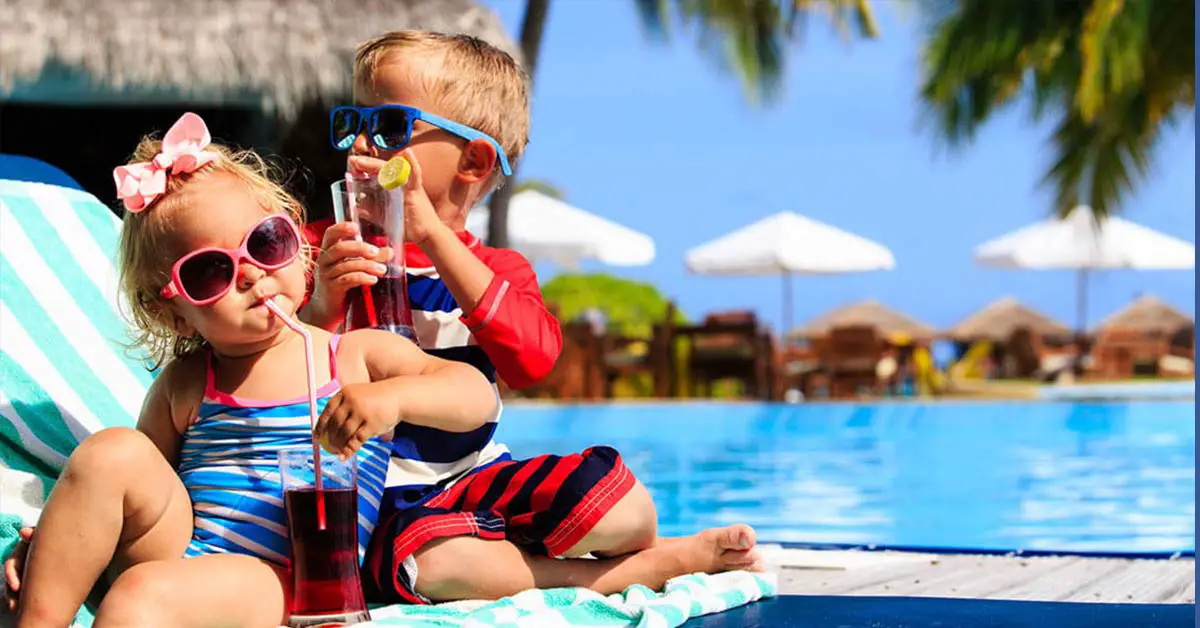It seems year after year we just accumulate more plastic stuff. But what if we told you that you should put an end to that and spend less money on toys and more on experiences?
Every single year, families will spend – and, for some, arguably waste – hundreds or thousands of dollars on toys. It doesn’t help that Christmas is conveniently tucked between Black Friday, Cyber Monday, and Boxing Week either.
Forbes reported that in 2016, the average parent was prepared to spend over $1,700 over the holiday season. Personal finance writer, Maya Kachroo-Levine, highlighted how much of that sum was going towards their kids.
“Parents are predicted to spend $495 per child this year, which is nearly $100 more than they spent [in 2015].” (1)
A Gallup poll reports that U.S. adults plan on spending around $885 on gifts in 2018. You can find the range of their findings below: (2,3)
- 33% expect to spend at least $1000 on gifts
- 22% expect to spend between $500 and $999
- 29% expect gift spending to be between $100 and $499
- 3% plan to spend less than $100
Those are quite startling numbers…

That’s why Oliver James, Britain’s best-selling psychological author, thinks parents should be spending all that Christmas money on holidays instead. He argues, in fact, that children either do not want or value most of the gifts they receive.
“The whole business of providing material commodities for kids – in ever more expensive forms as they get older – is entirely 100 percent, about propping up the industry that profits from it,” James says. (4)
“On the other hand, family holidays are definitely valued by children, both in the moment and for long afterwards in their memory. So if you’re going to spend money on something, it’s pretty clear which option makes more sense.”
A psychology professor at Cornell University, Thomas Gilovich, has conducted a number of eye-opening studies about that very subject. He has concluded that humans derive happiness not from things, but experiences. (5)
Read: People Want Home Economics Classes Brought Back To Teach Kids Basic Life Skills
Scientific Proof That Experiences Mean More Than Possessions
In a 2012 study published in the Journal of Personality and Social Psychology, Gilovich and research partner T.J. Carter wanted to find out what kind of purchases make us most happy. (6)
When it came to purchasing experiences versus possessions, they learned that people felt more regret about not attending concerts, for example, as opposed to not buying a piece of furniture.
Gilovich’s 2014 study published in the Journal of Consumer Psychology found that what holds our social lives together is our experiences. During his research, he found that experiential purchases: (7)
- Enhance social relations more readily and effectively than material goods
- Form a bigger part of a person’s identity
- Are evaluated more on their own terms and evoke fewer social comparisons than material purchases
That’s Why Oliver James Emphasizes Spending Less Money on Toys and more on Family Holidays

Material gifts are temporary, whereas memories are timeless. Children may not appreciate things like nuanced cuisine, fine art, and rich cultural history. And that’s a mistake many parents make – expecting their kids to love what they love about vacations. But James puts it beautifully:
“Children see the world differently, though consumption for example: the way that French cafes have Organgina instead of Fanta is fascinating to kids, and details like that will stick with them for long after the holiday ends,” says James.
“Give a two-year-old a present and she’ll get absorbed in the box instead. It’s similar with children and travel. We should let them explore their own ways of finding wonder in their surroundings.”
Between parents who work full-time jobs and children who are school for long hours, time to foster health parent-child relationships has never been more valuable.
To make things more challenging, toys are increasingly accompanied by batteries and screens. As a result, seemingly thoughtful and intimate gifts are ironically distancing family members from each other.
Not all toys are bad!
That’s not what James is saying. However, if you have never given your child an experience during the holiday season before, consider doing so this year.
“Because, according to James, what children really value about holidays is the rare possibility they create for prolonged periods of playfulness with their parents.” (4)
Whether it’s in your budget to hop on a plane or scout out a secret local spot, this Christmas could be an experience your kids will be unwrapping for life.
Keep Reading: There’s A Theme Park That Allows Kids To Operate Construction Machinery
Sources:
- “Here’s how much you’re going to spend on the holidays this year” Forbes. 2016
- “Americans in the Mood to Spend This Holiday Season” Gallup. October 2018
- “Average Cost of American Holiday Spending” Investopia. Agust 2021.
- “The science behind why you should spend money on family holidays instead of toys” The Telegraph. January 24, 2017.
- “Want Happiness? Buy Experiences, Not Things, Says a Cornell Psychologist” Big Think. July 22, 2016
- “I am what I do, not what I have: The differential centrality of experiential and material purchases to the self.” Journal of Personality and Social Psychology. June 2012.
- “A wonderful life: experiential consumption and the pursuit of happiness” Journal of Consumer Psychology. Januray 2015.
This article was originally published on The Hearty Soul in December 2020.

